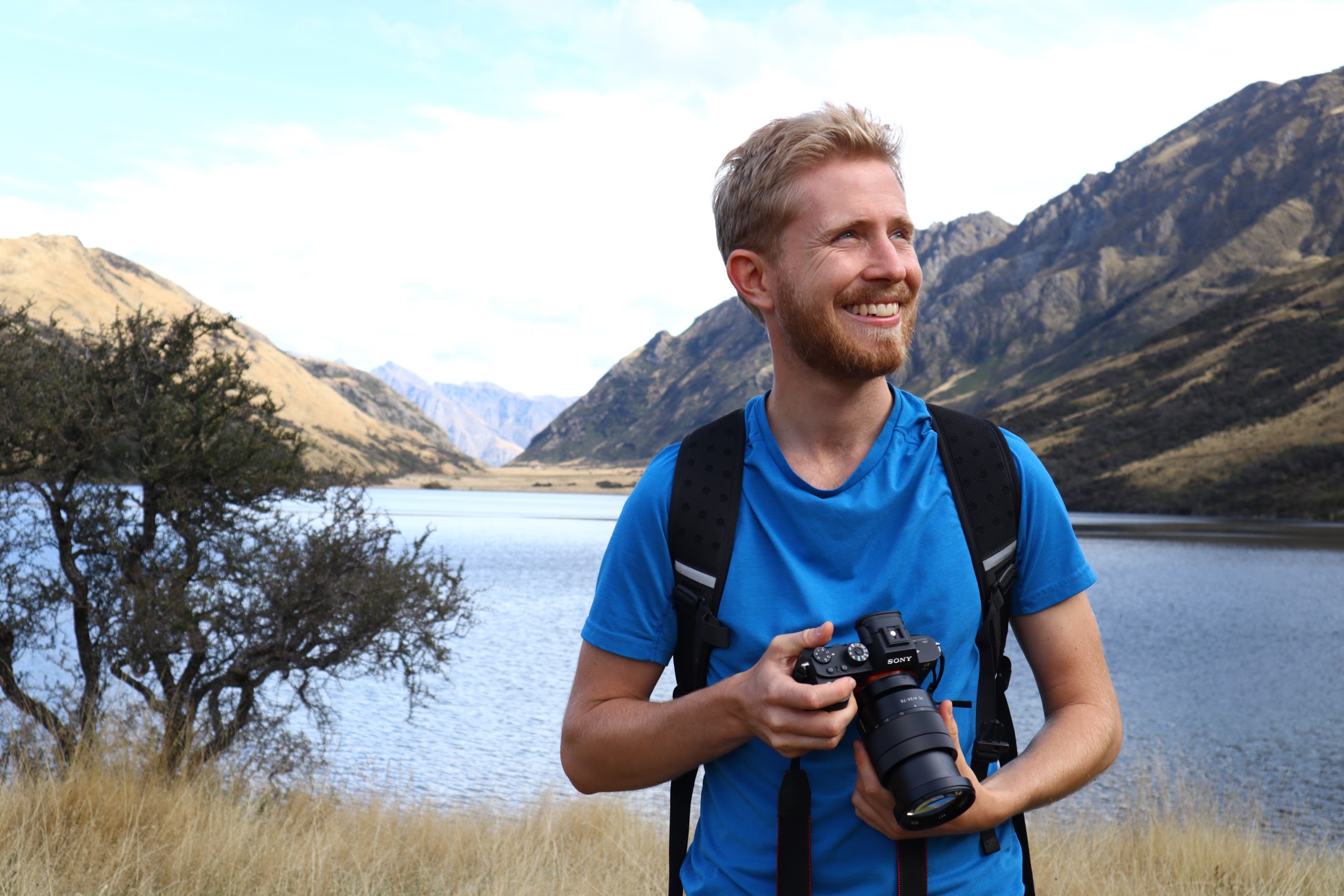Why It's Hard Being a Filmmaker (My Story of Failure)
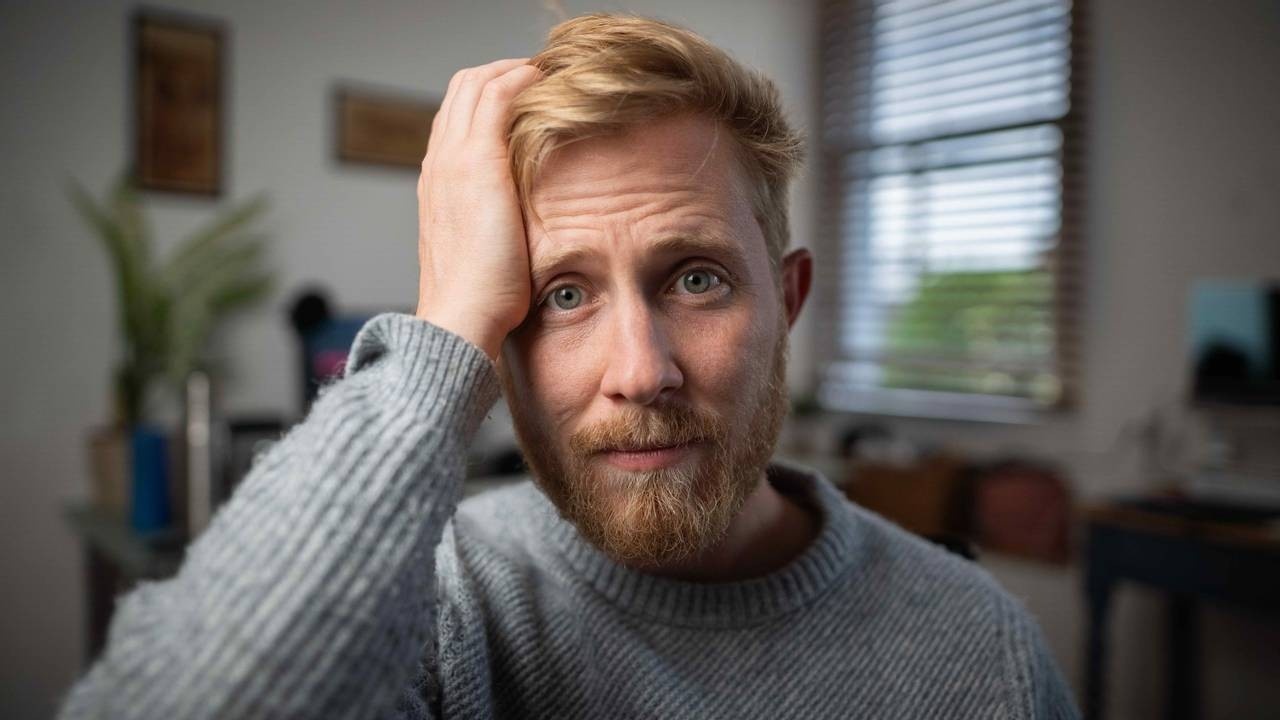
Have you ever had moments in life or as a filmmaker that have knocked your confidence? Maybe you’ve been rejected or someone has been unkind. Or, perhaps, your fear of failure has prevented you from even getting started on something?
I’ve been through all of this, as many of us have, so I know how paralysing it can be when your confidence is knocked. But it doesn’t have to be as hard as we think it is. In this blog, I explore the important role of failure in both a successful life and filmmaking career and how expecting and embracing failure is key to both professional creativity and personal happiness.
My Story of Failure as a Filmmaker
My career as a filmmaker has been an incredibly rewarding journey so far, and I’ve met so many inspiring people along the way. But, getting to this point has involved a lot of confusion, failure, and frustration. And it still does at times. Just ask my partner, Natalia!
I started making films when I was 9. I was bullied at school, and the way I learned to deal with it was to throw myself into my passion projects. Behind the camera, I felt like my confident filmmaking heroes. Pretty much all of my self-worth came from filmmaking. But, each time I failed, I got a knock in confidence. Each project that didn’t end up as good as I’d hoped, I’d abandon. I almost gave up on filmmaking altogether.
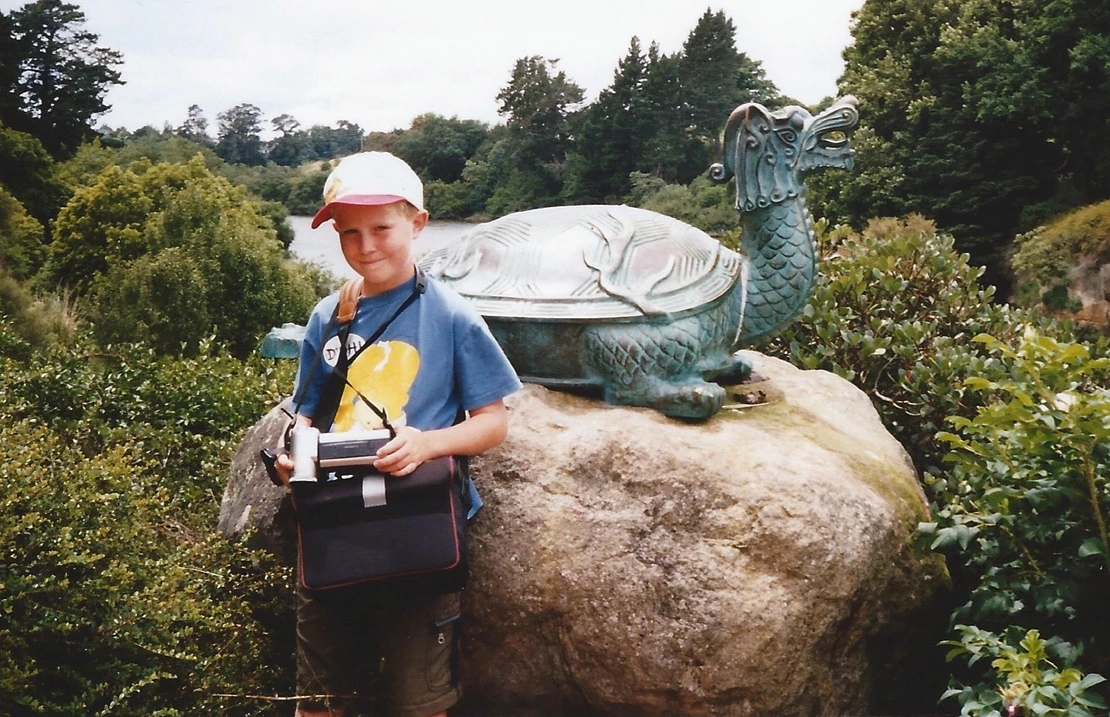
A Documentary Filmmakers Journey
I remember one occasion in particular when I was 17, I made a film that had taken me a whole year to complete. I invited all my friends and family to attend the youth film festival which I’d entered, sure that I’d win the best director or best film award. It got to the awards night and I didn't even get a mention. There were only about 10 films entered and about 20 awards, so that’s quite something! That massively knocked my confidence, as I’d really poured my heart and soul into that film. And there was nothing out there to show me that my filmmaking heroes had actually made mistakes along the way too. So I just felt really down and questioned myself.

Embracing Failure: Insights from Brene Brown
But something kept me going – and now, looking back – I can see the important lessons that come from times like that. A real turning point for me in terms of how I see failure was when I read the books Rising Strong and Dare to Lead by Brene Brown. I now look at failure in a whole new light and am willing to be vulnerable and share my experiences, in order to help and to connect with others.
Brene explains how generally, there are two main ways people can respond to failure:
- We hold on to the pain it caused, overcome by negative self-beliefs. This state can negatively affect our relationships, and we may blame others, or give up on our projects altogether.
- We forgive ourselves, and others, and embrace our failures as an opportunity to learn. This state allows the pain to become a force for empathy and can help us to connect with others.
I use to respond in the first way - internalising the failure, blaming myself, and sometimes giving up altogether. For example with my short film One Breath, I abandoned the project for two years, because the shoot hadn't gone to plan. I didn't think I had enough material to make a film; I just felt like a failure. But in those two years I came to realise that it's way better for me – and for everyone around me – if I respond in the second way; accepting what’s happened, forgiving myself, and learning from it. So, eventually I decided to get an editor on board to help me finish the film. This was a great move - it was really valuable to get feedback from someone with a fresh pair of eyes, and it motivated me to finish the film. What's more, I even discovered the main subject had a hard drive full of archive material that I could use to piece the film together. What luck! I only finished the film because I was brave enough to admit to others that I needed help, and to make the best of the situation. I learned so many valuable lessons from that experience, even if it was tough at the time. When it comes to documentary filmmaking, it's so important to finish the project, even if it takes a few years, and even if it's not your best work.
Because I felt so overcome by negative self-belief after the shoot being unsuccessful, I thought having a fresh pair of eyes to help finish the film would be really valuable. Also, after the shoot I discovered the main subject had a hard drive full of archive material that we also used to help piece the film together. When it comes to documentary filmmaking, it's so important to finish the project, even if it takes a few years, and even if it's not your best work.
How I react is my choice. Yes, failure is going to hurt, I can’t deny that - but after the initial feelings of disappointment, I can reflect on the value of the lesson learned. As Maya Angelou says: “You may not control all the events that happen to you, but you can decide not to be reduced by them.”
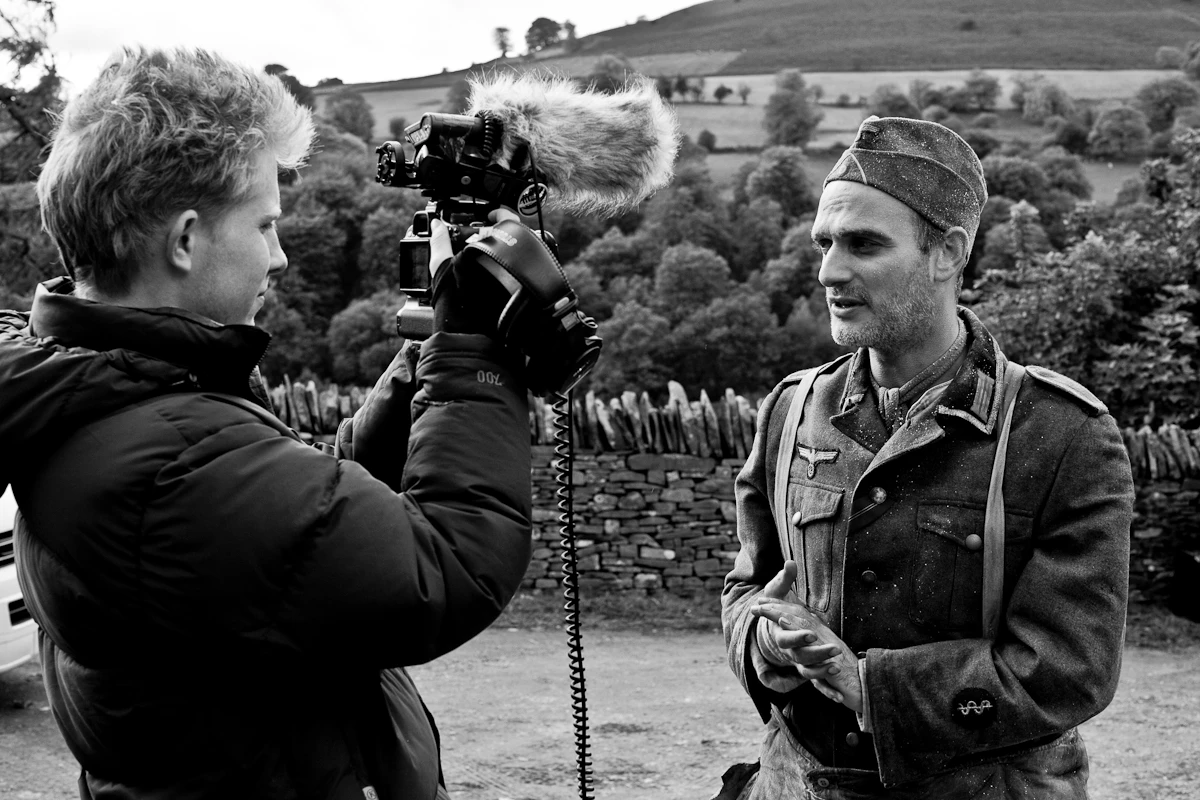
6 Key Reasons Filmmakers Should Celebrate Failure
1. Being daring is willing to fail
It’s a fact - the more you put yourself out there, the more likely you are to fail. If you’re failing, it means you’re doing something right - you’re trying. I’ve had countless rejections from film festivals, and I’m sure any filmmaker would say the same. It can be so disheartening. Yet, I see that the reason I’ve had film festival successes is because I kept applying. The more applications I make, the higher the chances of success.
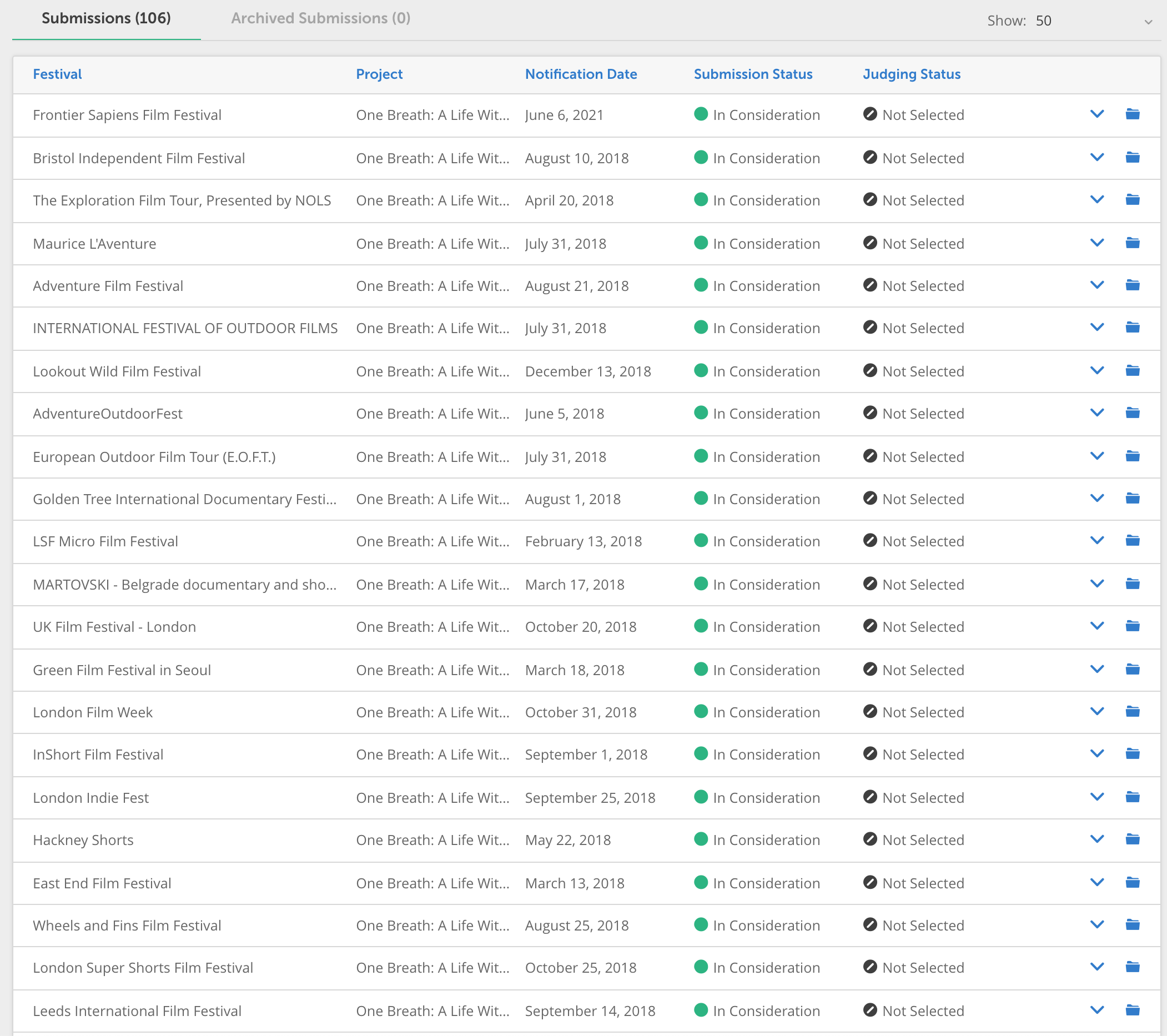
2. Failure builds resilience
Resilience is the ability to bounce back after a challenge. I see it as a skill that I build through experience - the more challenges I have, the quicker I can bounce back. Honestly, it gets easier every time! The great thing is - this is a totally transferable skill to a non-work setting - there are always going to be moments in our lives where we feel we have failed, whether it’s to do with our friendships, our relationships, our finances, or our health, and being able to deal with them in a confident and calm way is key to success. If I think back to all those lonely times when I was trying to make films by myself in New Zealand, I realise how determined and independent they made me. As you all know, a good character arc is important in any story - and in life too!
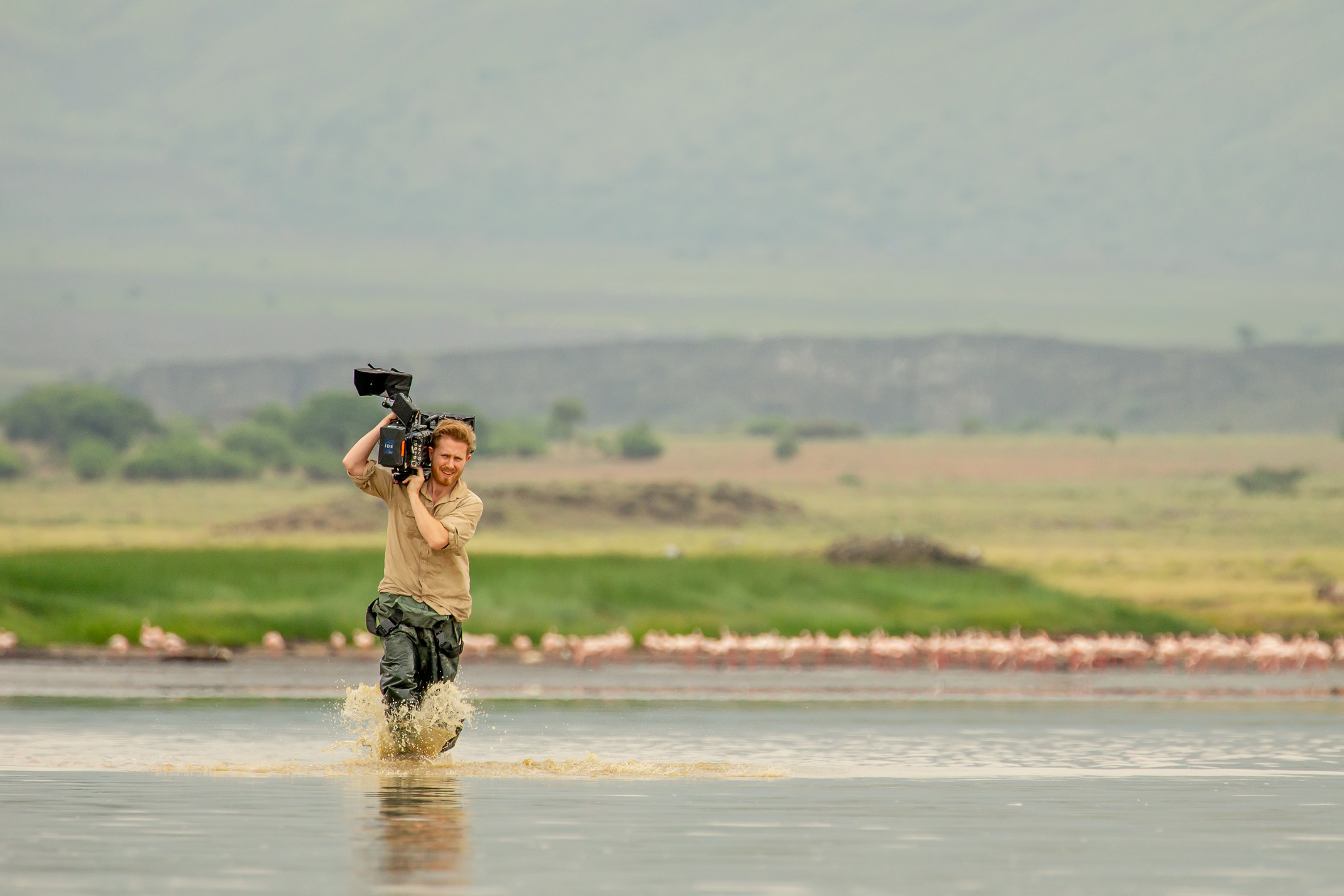
3. Failure is no reflection on you
It is so important to remember not to take things personally - a lesson we all learn over and over again! Just because my film didn't work out the way I’d hoped, doesn't mean I am a failure. Just because someone doesn't like my film, like that film I made when I was 17, it doesn't mean they don’t like me! It took me a long time to realise that I am worth more than my films, and I am so glad I did. The key is that now my self-talk is ‘I failed and that’s ok’, not ‘I am a failure and I’m unworthy’.
4. Improvement comes from failure
This one is obvious and so incredibly valuable. Rather than wipe that moment of failure from my mind and pretend it didn't happen, it really helps me to look at it closely and think; what did that event show me? What can I learn? What can I do differently next time?
So, as an example, I had already finished making my documentary, One Breath, about a woman who was attempting to break the world record for deep water diving, when I realised that she had tried once before and had almost died - and that someone had filmed it! What an opportunity I had missed. By looking back at that experience, I learned to always ask the protagonist about the consequences of not achieving their goals. And now, my stories are so much stronger.
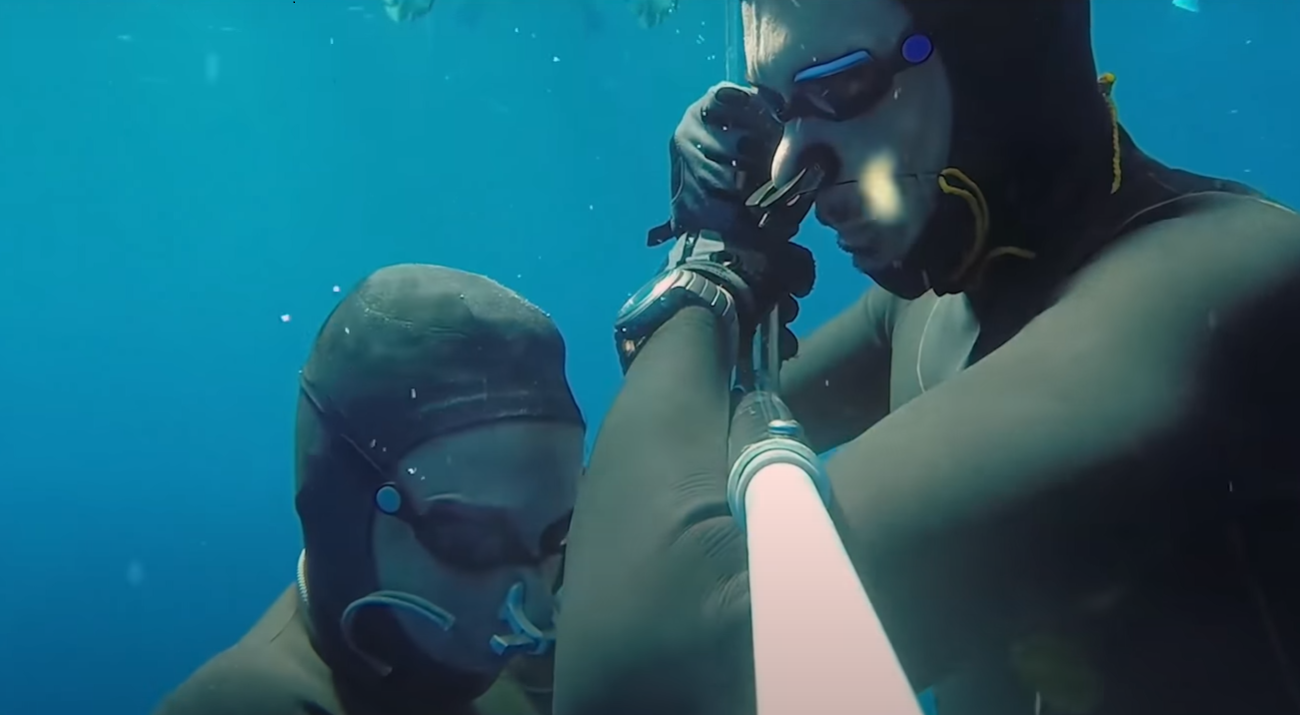
5. Without failure, we wouldn't recognise success
The moments that make me feel proud are so much sweeter after I’ve tasted the bitterness of disappointment! I really feel that diversity is the spice of my filmmaking career. Once, when I had just moved to the UK, I spent all of my money on camera equipment and then couldn't find a filming job. I ended up with just 50p in my bank account and had to ask my family for money to buy food. That wasn’t my proudest moment! Since then, things have only got better and I appreciate earning a living from filmmaking so much more.
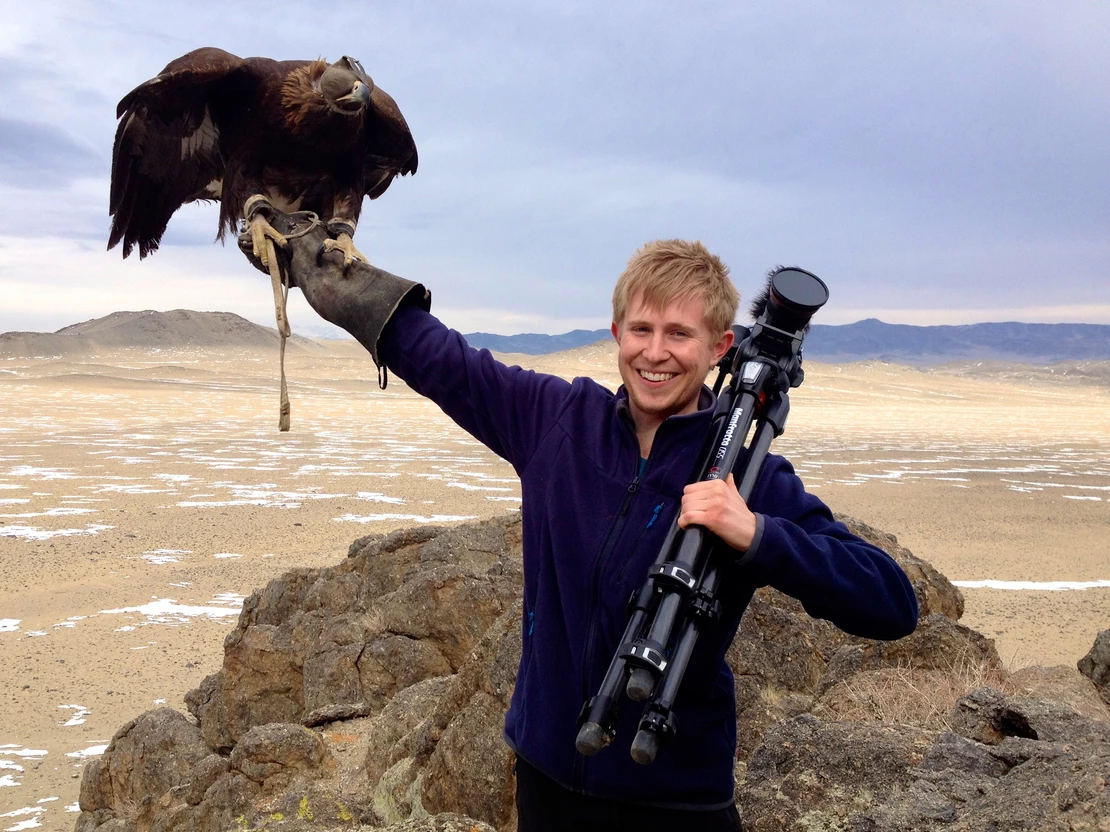
6. Failure helps you empathise with others
My experiences of failure are in many ways what actually inspired me to set up the Documentary Film Academy. I know how important it is to have support and encouragement through challenging times. I know how disappointing it is to put all of your energy into a project that doesn't work out. By sharing our failures with each other, as well as our successes, we can create a supportive community and keep increasing the quality of documentary films together.

Filmmaking Failures I Regret
If you want to hear more about what I’ve learned from my mistakes, you can watch a short video I made with my friend and filmmaker Simon Cade:
As you can see, I would wholeheartedly recommend starting that ambitious project you've always dreamed of. Submit that film to a festival, without worrying about rejection. And if you need some support, you know where to find the Documentary Film Academy.
I'm often asked lots of questions by aspiring filmmakers about becoming a documentary filmmaker. So I've put together a list of Q&A's that will hopefully answer most of these questions:
How to Become a Documentary Filmmaker
Becoming a documentary filmmaker is an extraordinary adventure – it's where compelling storytelling meets real-world exploration. If this sounds like your passion, the first step is simple: dive into the rich tapestry of documentaries. Explore different styles, themes, and approaches. This isn't just homework; it's about igniting your inner filmmaker, and figuring out what sparks that creative fire inside you.
Education is valuable, of course. While traditional film school offers a great foundation, plenty of celebrated documentarians carved their own path. Online courses, workshops, and carefully dissecting the work of masters are excellent for developing your knowledge.
And nothing beats hands-on experience. Begin with short documentaries about subjects close to you, and work with equipment within your means. Experimentation is your best teacher; this is how you grasp visual storytelling, conquer technical hurdles, and discover your way around the sometimes unpredictable world of documentary production.
Seek out fellow filmmakers and professionals in the field. These connections can lead to collaborations and unlock potential funding – after all, documentaries often thrive on collective support.
Always remember, that your ability to craft compelling narratives is the soul of your work. Learn to authentically connect with your subjects and shape a clear vision for your films. Lastly, perseverance is everything. Documentary filmmaking takes grit, but knowing your work can illuminate hidden truths and ignite change.
Filmmaking Career: How Long Does It Take?
Embarking on a filmmaking career is like setting out on a grand expedition – full of wonder, twists and turns, and discoveries you couldn't have predicted. One question that always pops up is, "How long will this journey take?" And honestly, there's no set timeline. Filmmaking is like that; each person's path has its own rhythm. Some folks burst onto the scene with a knockout debut, while others steadily climb, refining their skills and finding their tribe along the way.
How quickly you build that career depends on a blend of factors: your training, the hands-on experience you grab, the connections you nurture, your chosen niche (because directing is a whole different beast than cinematography), and yes, a sprinkle of good fortune. The reality is, that this is a lifelong trek for many of us—constantly evolving, always adding new tools to our kit.
That said, some things will accelerate your journey. Devour great films, hone your craft, and showcase your work. Seek out festivals, internships, workshops—anywhere you can learn and show what you've got. Most importantly, remember that passion and grit are your best allies in this world. It may take a few projects or a whole winding decade to hit your stride, but every bit of that journey— that's what sharpens your skills and turns you into the filmmaker you're meant to be.
The Reality of Becoming a Documentary Filmmaker: What to Expect
Embarking upon the journey to become a documentary filmmaker is a path paved with passion, perseverance, and a deep-seated commitment to storytelling. It's a vocation that necessitates a unique amalgamation of creativity, technical prowess, and a steadfast dedication to conveying stories. Aspiring filmmakers should brace themselves for a non-linear trajectory, where success is not solely quantified by commercial triumphs but by the impact and pertinence of the narratives they elect to portray. The truth is, documentary filmmaking often unfolds as a labour of love, compelling one to assume various roles—from researcher and scriptwriter to director and editor.
Securing funding and distribution poses formidable challenges, as documentaries might not always garner the same level of financial support as their narrative film counterparts. Nonetheless, the advent of the digital era has leveled the playing field somewhat, furnishing more platforms and opportunities for independent filmmakers to exhibit their work. Networking, both virtually and face-to-face, is paramount for discovering collaborators, mentors, and audiences.
In addition, documentary filmmakers must navigate the ethical implications of depicting real stories about real individuals. This responsibility demands sensitivity, respect, and an unwavering commitment to authenticity. The journey is arduous, often characterised by extensive filming hours, meticulous editing, and the challenge of weaving complex narratives into a cohesive whole. Yet, for those driven by a desire to uncover and disseminate truths, the personal and professional gratification can be profound, offering the chance to enlighten, inspire, and stimulate discourse on a global scale.
Filmmaking as a Career: Is It Worth It?
Choosing filmmaking as a career is akin to embarking on a voyage of artistic expression, technical challenges, and narrative exploration. It's a field that demands not just a passion for storytelling but also resilience, adaptability, and an unyielding dedication to craft. The question of whether it's worth it depends largely on one's personal aspirations, values, and the fulfillment derived from creative work. Filmmaking can be both exhilarating and daunting; it offers the potential for profound personal satisfaction, the opportunity to impact audiences on a global scale, and the chance to leave a lasting cultural legacy. However, it also comes with its fair share of uncertainties—irregular work, financial instability, and intense competition.
The digital age has democratised access to filmmaking tools and distribution platforms, making it easier than ever to produce and share work. Yet, this accessibility also means a saturated market where standing out requires not just talent but tenacity and innovation. Networking, continuous learning, and versatility are crucial for success. For those with a deep-seated love for film and a willingness to navigate its challenges, the rewards—creative freedom, the joy of collaboration, and the thrill of bringing stories to life—can indeed make it a career worth pursuing. It's a path best chosen with a clear-eyed understanding of its hurdles and a steadfast commitment to overcoming them.
Can You Become a Filmmaker at Any Age?
The filmmaking journey knows no age limit, proving that passion and creativity flourish independently of the number of candles on your birthday cake. Whether you're at the crossroads of 30, contemplating a career shift at 40, seeking a meaningful venture at 50, or exploring a long-held dream at 60, the realm of filmmaking is as accessible as ever. The digital revolution has lowered barriers to entry, making it feasible for aspiring filmmakers of any age to learn the craft, create content, and share their stories with a global audience.
At 30, you might be looking for a more fulfilling career path, one that marries your life experiences with a creative outlet. By 40, the depth of personal and professional experiences can enrich storytelling, offering unique perspectives often sought after in the world of film. Reaching 50 or 60, individuals frequently possess a wealth of knowledge, insights, and perhaps a little more financial stability to take risks on passion projects.
The industry cherishes diverse voices, with audiences craving stories that reflect a broad spectrum of human experiences. Success stories of filmmakers who started their careers later in life serve as a testament to the fact that talent and vision are not confined by age. With dedication, resilience, and a willingness to learn, becoming a filmmaker at 30, 40, 50, or even 60 is not just a possibility but a viable and potentially rewarding endeavor. To help you get started on your documentary filmmaking journey I've put together a free filmmaking training which you can get here: 10 Secrets to Creating Cinematic Documentaries

